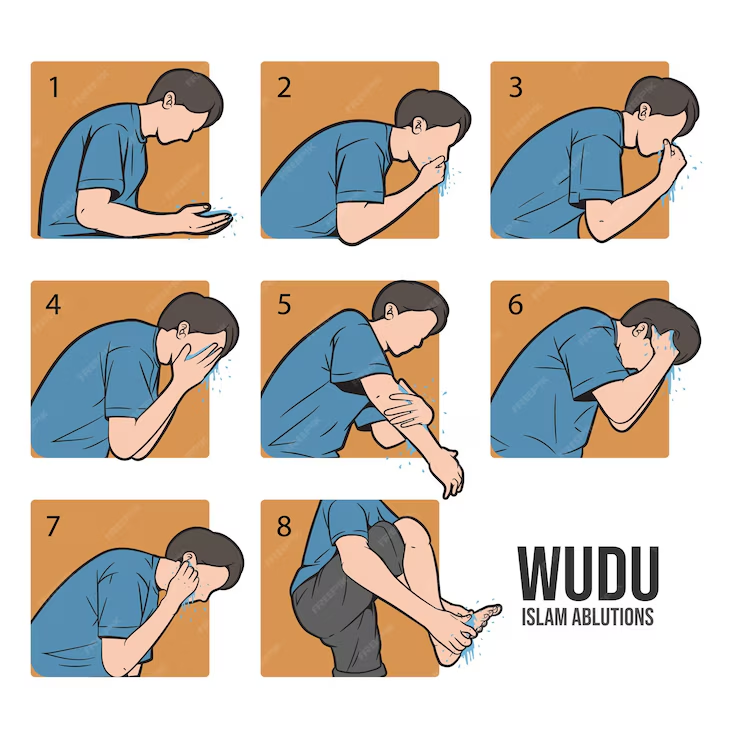
Proper Way to Offer Namaz: A Comprehensive Guide
The Islamic practice of formal prayer is called namaz, sometimes referred to as salah or salat. It is an essential act of worship for Muslims and one of the Five Pillars of Islam. Every practicing Muslim must correctly do the Namaz because it is a demonstration of their faith, devotion, and obedience to Allah. This article will walk you through each step of the correct manner to offer Namaz in detail.
1. Realising the Significance of Namaz
A worshipper and Allah can communicate directly during namaz. It is carried out at designated times five times a day:
- Fajr: Before dawn
- Dhuhr: After midday
- Asr: Mid-afternoon
- Maghrib: Just after sunset
- Isha: Night
A predetermined number of units, known as Rak’ahs, make up each prayer. It is essential to appropriately and consistently perform Namaz for spiritual development and fulfilment.
2. Preparations Before Namaz
A. Wudu (Ablution)
Before performing Namaz, Muslims must cleanse themselves through a ritual washing called Wudu. The steps for Wudu are:
- Intention (Niyyah): Make the intention in your heart to perform Wudu for the sake of Allah.
- Washing Hands: Wash both hands up to the wrists three times.
- Rinsing Mouth: Rinse your mouth three times.
- Sniffing Water into Nostrils: Sniff water into the nostrils and blow it out three times.
- Washing Face: Wash the face from the forehead to the chin and from ear to ear three times.
- Washing Arms: Wash the right arm up to the elbow three times, then the left arm three times.
- Wiping Head: Wet your hands and wipe over your head once.
- Cleaning Ears: Wipe the inside and outside of the ears with the index fingers and thumbs.
- Washing Feet: Wash the right foot up to the ankles three times, then the left foot three times.

B. Proper Attire
Ensure that your clothing is clean and covers your body appropriately. For men, the body should be covered from the navel to the knees, and for women, the entire body except the face, hands, and feet should be covered.
C. Finding a Clean Place
Perform Namaz in a clean and quiet place, free from distractions. Use a prayer mat if possible.
3. The Steps of Namaz
A. Intention (Niyyah)
Stand facing the Qibla (the direction of the Kaaba in Mecca). Make the intention in your heart to perform the specific prayer.
B. Takbir
Raise your hands to your ears and say “Allahu Akbar” (Allah is the Greatest). This marks the beginning of the prayer.
C. Qiyam (Standing)
While standing, recite Surah Al-Fatihah (the opening chapter of the Quran) followed by another Surah or a few verses from the Quran.
D. Ruku (Bowing)
Bend forward, placing your hands on your knees, and say “Subhana Rabbiyal Azim” (Glory be to my Lord, the Most Great) three times.
E. I'tidal (Standing Erect)
Return to the standing position and say “Sami’ Allahu liman hamidah” (Allah hears those who praise Him) and then “Rabbana lakal hamd” (Our Lord, to You belongs all praise).
F. Sujud (Prostration)
Prostrate by placing your forehead, nose, both palms, knees, and toes on the ground, and say “Subhana Rabbiyal A’la” (Glory be to my Lord, the Most High) three times.
G. Jalsah (Sitting Between Prostrations)
Sit up from the prostration and say “Rabbighfir li” (My Lord, forgive me).
H. Second Sujud
Prostrate again and repeat “Subhana Rabbiyal A’la” three times.
I. Tashahhud (Sitting for Testification)
After completing the required Rak’ahs, sit and recite the Tashahhud and the Salat Ibrahimiyyah. These are specific supplications acknowledging the oneness of Allah and the prophethood of Muhammad (PBUH).
J. Tasleem (Salutation)
End the prayer by turning your head to the right and saying “Assalamu Alaikum wa Rahmatullah” (Peace and mercy of Allah be upon you), then to the left and repeating the same.
4. Post-Namaz Supplications
After completing Namaz, it is recommended to engage in personal supplications (Dua) and remembrance of Allah (Dhikr)
Conclusion
Performing Namaz is a profound act of worship that connects Muslims to their Creator. By following these steps meticulously, you ensure that your prayer is performed correctly and is accepted by Allah. Regular and sincere practice of Namaz brings peace, discipline, and a sense of purpose to a Muslim’s life.

Learn About Our Alif Platform and it’s Services. Learn More



Recent Comments